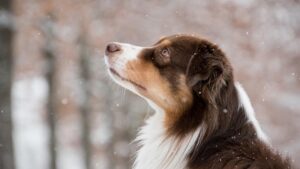Why Is My Dog Eating Dirt? Causes and What to Do About It
Imagine taking your dog on a peaceful walk through the park when, suddenly, they dive nose-first into a flowerbed and start munching on the soil. Before you can stop them, they’ve already swallowed a few mouthfuls. It’s bizarre, maybe even a little gross, but it’s not unusual.
This peculiar habit, known as pica, refers to the consumption of non-food items, such as dirt, rocks, or even inedible objects like socks. While it may seem like a quirky behavior, it can signal something more profound. Many pet owners find themselves asking, “Why is my dog eating dirt?” The answers can range from harmless habits, such as curiosity or boredom, to more serious concerns, including nutritional imbalances or anxiety.
In this article, we’ll dig into the most common causes behind dirt-eating, explore the health risks it can pose, and offer practical tips to help you redirect your pup’s attention toward safer, healthier habits.
- Pica is the consumption of non-food items, often signaling curiosity, boredom, nutritional deficiencies, or anxiety in dogs.
- Eating dirt can pose health risks, including infections and gastrointestinal blockages from hidden harmful elements in the soil.
- Consult a vet if dirt-eating is persistent, accompanied by symptoms like vomiting or lethargy, indicating potential health issues.
Why Do Dogs Eat Dirt?
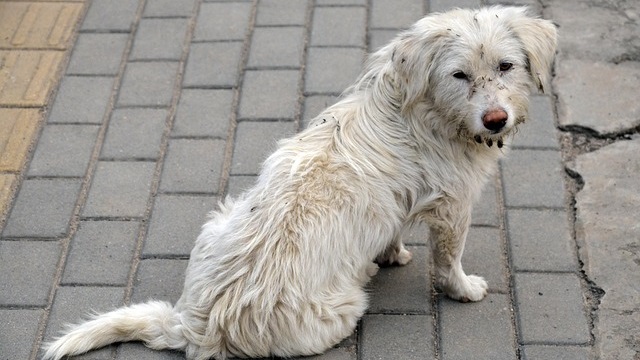
Dogs eating dirt may seem like an odd behaviour, but it is surprisingly common and can be linked to a few key causes. That is why you must understand why dogs do this, which can help you decide if it’s just a harmless habit or something that needs attention. Here are the typical reasons:
Natural Curiosity or Bredom
Dogs explore the world with their mouths, noses, and paws. Sometimes, eating dirt is just part of their natural curiosity, especially if they’re bored, lack mental stimulation, or have no one to play with. A walk, toy, or new game can redirect this interest.
Mineral or Nutritional Deficiencies
If your dog doesn’t get enough essential nutrients from their diet, they may seek out minerals in the soil. For instance, some dogs with anemia might eat dirt because they lack iron. This behavior might suggest it’s time to evaluate their food quality or consult your vet about supplements.
Digestive Upset or Nausea
Some dogs eat dirt along with the grass when they feel nauseated or have an upset stomach. Soil might temporarily soothe their gut or induce vomiting, although this is not a healthy long-term solution. Other medical reasons include anemia, liver shunt, gastrointestinal problems, or hormonal imbalances.
Stress or Anxiety
Stressful environments or changes in routine can trigger unusual behaviors, including dirt eating. Like nail-biting in humans, it can be a coping mechanism for anxiety. Therefore, it is essential to mitigate stressors that frequently contribute to this behavior.
“I got the Maven sensor for my 14-year-old Chihuahua mix with heart and trachea issues. It gave me back peace of mind – I can track her RRR, BPM, drinking, and activity anytime and know instantly if something’s wrong. Highly recommend!”
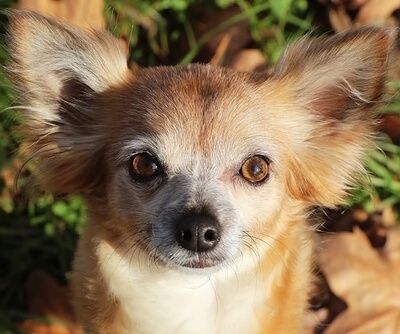
★★★★★
Chiara De Luca
Titti
Is Eating Dirt Dangerous for Dogs?
The occasional nibble might seem harmless, but a dog eating dirt can pose serious health hazards. Soil often contains harmful elements such as parasites, bacteria, fungal spores, and traces of pesticides and fertilizers that can lead to infections, toxic reactions, and other disease risks.
There is also the danger of foreign objects, such as rocks, sticks, or plastic, hidden in the dirt, which can cause dental damage, choking, or even result in a gastrointestinal blockage — all of which may require emergency veterinary care. In some cases, dirt-eating is merely a passing curiosity.
However, if the behavior is frequent or obsessive, it may signal an underlying issue like nutritional deficiency, digestive discomfort, or even anxiety. Pet owners often ask not only “Why is my dog eating dirt?” but also “Why is my dog licking everything?” and both behaviors can be related. They may point to similar health or behavioral concerns.
If your four-legged companion only occasionally tastes dirt during play and shows no signs of illness, it might not be a major worry. But consistent or intense dirt consumption is a red flag that warrants a vet visit to rule out more serious conditions.
Why Puppies Might Eat Dirt

It’s not unusual to catch your puppy eating dirt, especially during their early months of development. Puppies use their mouths to explore the world, much like human babies do. Whether it’s curiosity or the discomfort of teething, dirt can seem like an appealing texture to chew or taste.
However, because their immune systems and judgment are still developing, puppies are more likely to ingest harmful substances, such as pesticides, parasites, or sharp debris that may be hidden in the soil.
For instance, you’re at the local park with your pup, casually talking to another dog owner, when you suddenly notice your puppy happily munching on a patch of mud. Although this might seem harmless, it’s important to watch for signs such as vomiting, diarrhea, loss of appetite, or fatigue, as they could indicate your puppy has ingested something dangerous.
Therefore, it is recommended that you always supervise outdoor play, redirect the behavior with safe chew toys, and consult your veterinarian if dirt-eating becomes frequent or persistent.
When to See a Vet
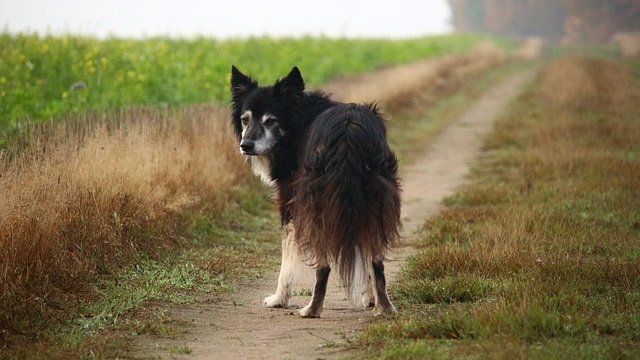
If you’ve ever wondered: “Is it bad for dogs to eat dirt?” — the answer is, it can be. It’s essential to consult your veterinarian if your furry friend continues to eat dirt, particularly if the behavior is accompanied by concerning symptoms.
Tools like the Maven Pet Health Monitor, a pet smart collar, can help you detect early warning signs by tracking your dog’s behavior patterns.
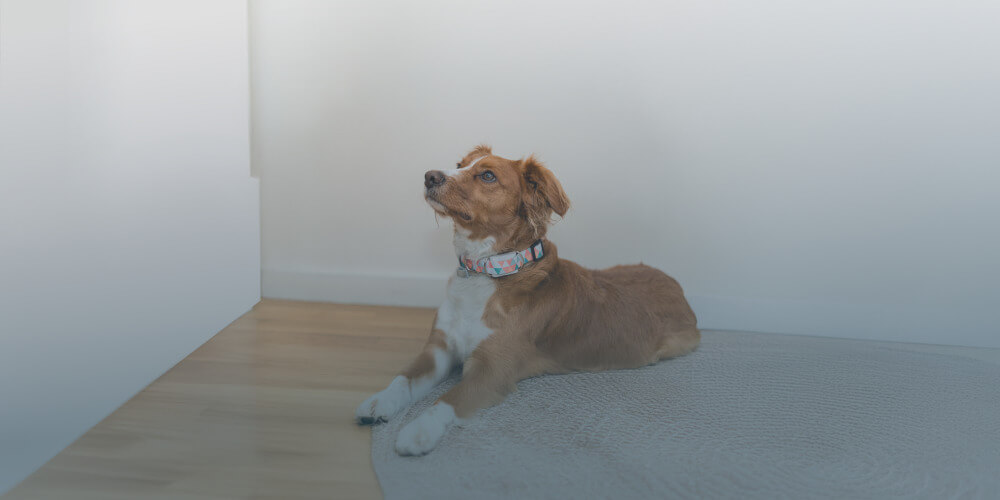
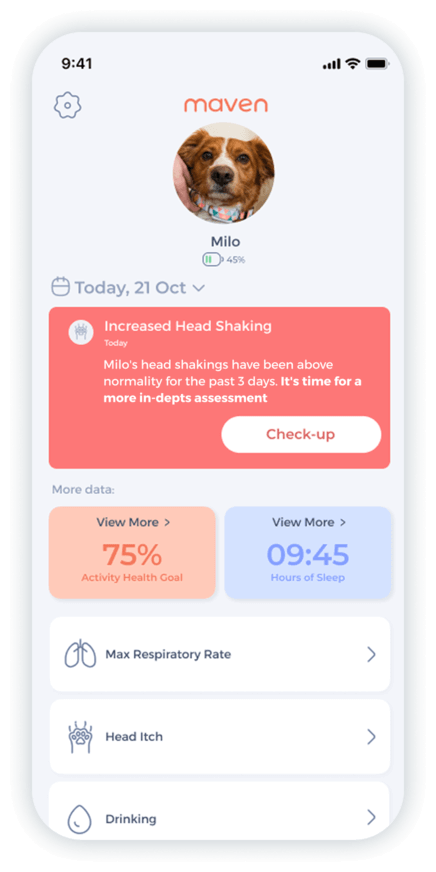
Monitor heart rate, respiratory rate, activity & rest, drinking, itch behavior.
Keep an eye out for:
- Persistent Dirt-Eating — If your dog consistently seeks out and eats dirt, it may indicate a nutritional deficiency, anxiety, or an underlying health condition.
- Vomiting, Lethargy, or Diarrhea — These symptoms, alongside dirt-eating, suggest your dog might have ingested toxins, parasites, or indigestible material. Also, watch out for abdominal pain, anorexia, and loss of appetite.
- Changes in Rest, Water Intake, or Activity — The Maven pet smart collar monitors these metrics and alerts you if something’s off. This way, it helps you act before the problem worsens.
What Can You Do?
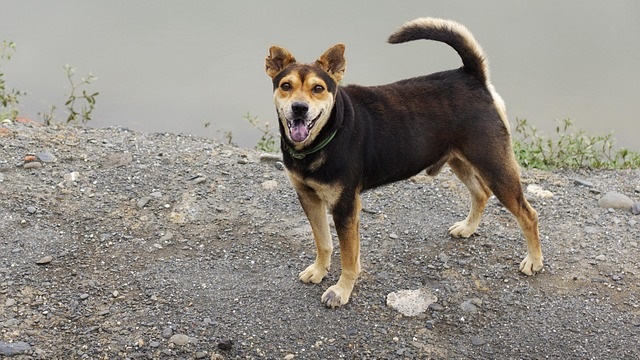
It can be worrying to see your dog eating soil, especially when it becomes a regular habit. Fortunately, there are a few practical steps you can take to address the behavior and keep your pup safe. Dogs eating odd things is more common than many owners realize, but with a little effort, it can be managed. Here’s how:
- Provide Enrichment and Chew Alternatives — Boredom is a common trigger, so offer interactive toys, puzzle feeders, and safe chew items to keep your dog mentally and physically engaged. Additionally, you can register them for doggy daycare where they can play with other pooches.
- Ensure a Balanced Diet with Essential Minerals — Nutritional deficiencies, particularly in iron or other essential minerals, can trigger excessive dirt-eating behavior. Consult with your veterinarian about a complete and well-balanced diet.
- Supervise Outdoor Time and Limit Access to Harmful Areas — Keep an eye on your dog during walks or in the yard to prevent access to potentially contaminated soil or areas treated with chemicals. Also, use positive reinforcement and teach them commands, such as “Leave it!” or “Drop it!”
And if dirt-eating is paired with signs like excessive salivation, you may find yourself asking, “Why is my dog drooling so much?” That could indicate something more serious.
Conclusion
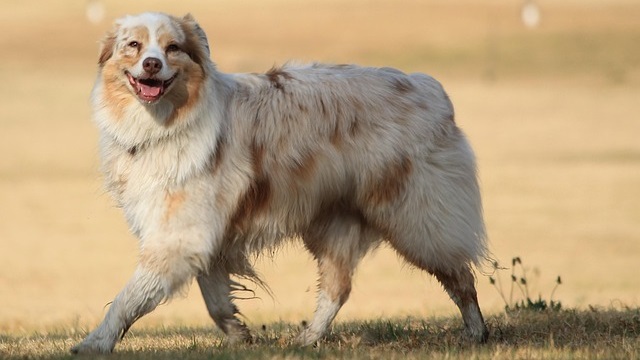
The first step towards protecting your dog’s health and happiness is to figure out the answer to your initial question: “Why is my dog eating dirt?” Always watch for symptoms such as vomiting, diarrhea, or lethargy, and don’t ignore any unusual behaviors.
For added peace of mind, consider using the Maven Pet Health Monitor, which tracks vital signs such as rest, activity, and hydration, alerts you to early signs of trouble, and maintains their overall pet wellness. Remember that proactive care helps keep your dog safe, healthy, and thriving at every stage of life.
Maven Pet focuses on improving the quality of life of our pets with technology, using artificial intelligence (AI) to enable proactive pet care. By accurately collecting and monitoring pet data 24/7 and flagging any irregularities, Maven Pet empowers pet parents and veterinarians to stay ahead of potential health issues, ensuring the well-being and longevity of our beloved companions.


